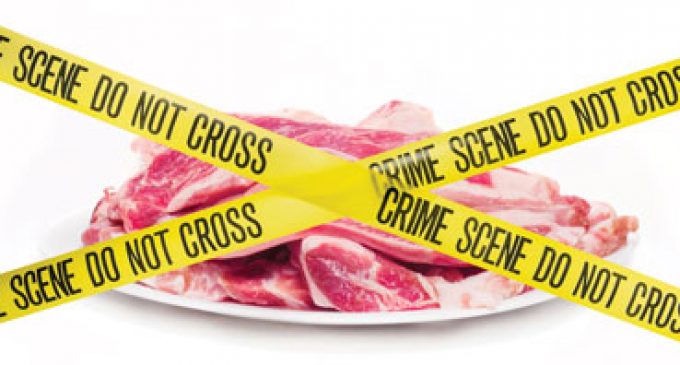MSU helps fight food fraud

Michigan State University (MSU) has not only defined the term “food fraud,” but the university says it is also helping the United States and other countries establish the strategies to fight it.
In a recent issue of Food Chemistry Journal, the MSU research team introduces the topic of food fraud and provides a definition with translations in Russian, Korean and Chinese. The paper also tackles a system-wide focus that could lead to prevention.
“Our article is a translation by experts in their countries and includes an interpretation to address the emerging issue in their country,” Spink said. “The co-authors are champions for food fraud prevention around the world.”
Food fraud is defined as intentionally using deception for economic gain involving food. MSU has been helping governments, manufacturers and retailers that have been deceived. Recent examples include European stores unintentionally selling beef tainted with horsemeat, pet foods with melamine filler in lieu of whey protein – a substitution that proved deadly for many pets – and Chinese Wal-Marts mistakenly including fox meat in their offerings of donkey meat.
Donkey meat is standard fare in northern China. While this tainted-meat scandal may have happened in an isolated area, Wal-Mart felt the negative economic impact around the globe, said John Spink, director of MSU’s Food Fraud Initiative, assistant professor in the College of Veterinary Medicine and co-author on the paper.
“It’s legal for Wal-Mart and other stores to sell donkey meat in rural northern China, which is sold by many stores there,” he said. “But when the news broke of this species swapping, the story went viral. Crises like these can have a catastrophic effect on companies, governments and consumer confidence.”
Spink and Doug Moyer, MSU program in public health professor and co-author, provide an academic definition – unbiased and peer-reviewed. The researchers’ goal is not simply to define and detect food fraud, but also to adjust entire food supply chains to focus on prevention, Spink said.
“For governments to begin addressing the issue, they needed a credible source they could reference – an academic source rather than a food association that could potentially have biased views,” he said. “Already, we’re collaborating with many other countries and serving as members on their food fraud teams. MSU is leading the world down the food fraud prevention path.”
Getting involved in the issue at the earliest stage has established MSU as one of the key sources for government agencies and company leaders, Spink added. The next phase of this research will be to put these new laws and guidelines into practice.
Search “food fraud” on Google and MSU comes up as one of the top references. In the last month, representatives from Nigeria’s and Saudi Arabia’s departments of food and agriculture have met with Spink to establish guidelines to fight food fraud in those nations. Wal-Mart, looking to recover from its own scandal, helped sponsor a food fraud course, also led by MSU, translated into Mandarin, Spink said.
“We’ve built credibility, and government agencies and Fortune 500 companies are continuing to reach out to us for guidance,” he said. “Our research isn’t being shelved, either. It’s reaching people, and it’s already having a positive impact, one that we’ll certainly build on in the coming years.”

































